Iran-US crisis: Rouhani derides new sanctions as 'useless'
- Published
Iran's president says the US is lying about wanting dialogue
Iran's president has responded with defiance to the latest sanctions imposed by the US, saying they show it is lying about wanting dialogue.
Hassan Rouhani said the measures against Iran's supreme leader unveiled by President Donald Trump on Monday would be "useless" and denounced US plans to target his foreign minister.
The moves showed the White House was "mentally disabled", Mr Rouhani added.
Mr Trump said he was responding to recent "aggressive behaviour" by Iran.
Last week, Iranian forces shot down a US surveillance drone they said had violated Iranian airspace over the Strait of Hormuz. The US insisted the drone was flying over international waters.
The US has also accused Iran of being behind two sets of explosions that have damaged six oil tankers in the region, through which a fifth of the world's oil passes each day. Iran has rejected the allegation.
Tensions between the two countries have escalated steadily since May 2018, when Mr Trump abandoned the landmark 2015 nuclear deal between Iran and six world powers, and began reinstating sanctions to force Iran to renegotiate the accord.
Last month, Iran scaled back some its commitments under the deal, including on the amount of low enriched uranium it is allowed to stockpile, after Mr Trump ended exemptions from US secondary sanctions for countries still buying Iranian oil.
The US is hoping these additional sanctions will force Iran to negotiate, with US National Security Adviser John Bolton saying Washington was willing to go further in order to get Iran to the table.
"They'll either get the point or... we will simply enhance the maximum pressure campaign further," he told reporters. "It will be, I think, the combination of sanctions and other pressure that does bring Iran to the table."
Who do the new sanctions target?
Mr Trump said the measures would deny Iran's Supreme Leader, Ayatollah Ali Khamenei, his office, and those closely affiliated with him, access to key financial resources and support.
President Trump: "The assets of Ayatollah Khamenei and his office will not be spared"
"The supreme leader of Iran is one who ultimately is responsible for the hostile conduct of the regime. He's respected within his country. His office oversees the regime's most brutal instruments, including the Islamic Revolution Guards Corps," he told reporters in the Oval Office, external.
Some analysts said the sanctions were largely symbolic, although the US treasury department said the measures would lock up billions of dollars in assets.
The treasury said it was also imposing sanctions on eight senior commanders of the IRGC's navy, air force, and ground forces, external, including the head of an air force unit that the US said had ordered the shooting down of its drone.
Iranian Foreign Minister Mohammad Javad Zarif - who was the country's top negotiator on the nuclear deal - would be targeted later this week, it added.
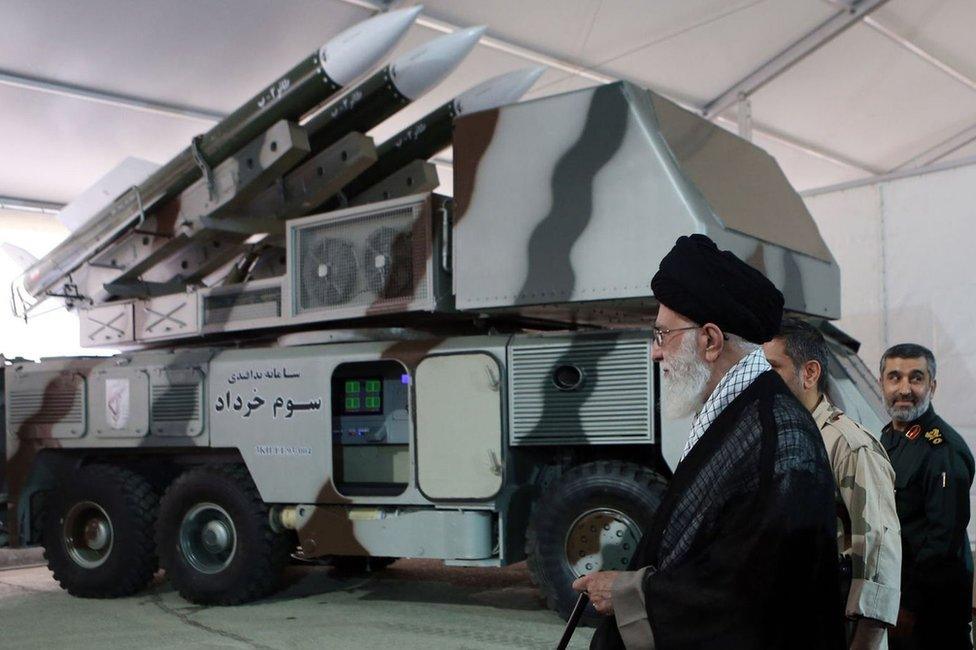
Mr Trump said Ayatollah Ali Khamenei was "ultimately responsible for the hostile conduct" of Iran
Despite the current tensions, Mr Trump insisted he was willing to start negotiations on a new nuclear accord that would also see Iran agree to curb its ballistic missile programme and end what he calls its "malign" activities in the Middle East.
"If they don't want to, that's fine too. But we would love to be able to. And, frankly, they might as well do it soon," he said.
What was the Iranian response?
The sanctions announcement was met with ridicule in parts of the Iranian press, while Mr Zarif tweeted that those advising the US president "despise diplomacy" and "thirst for war", external.
In a televised address to a meeting of healthcare professionals on Tuesday, President Rouhani said the sanctions targeting Ayatollah Khamenei were "outrageous and idiotic".
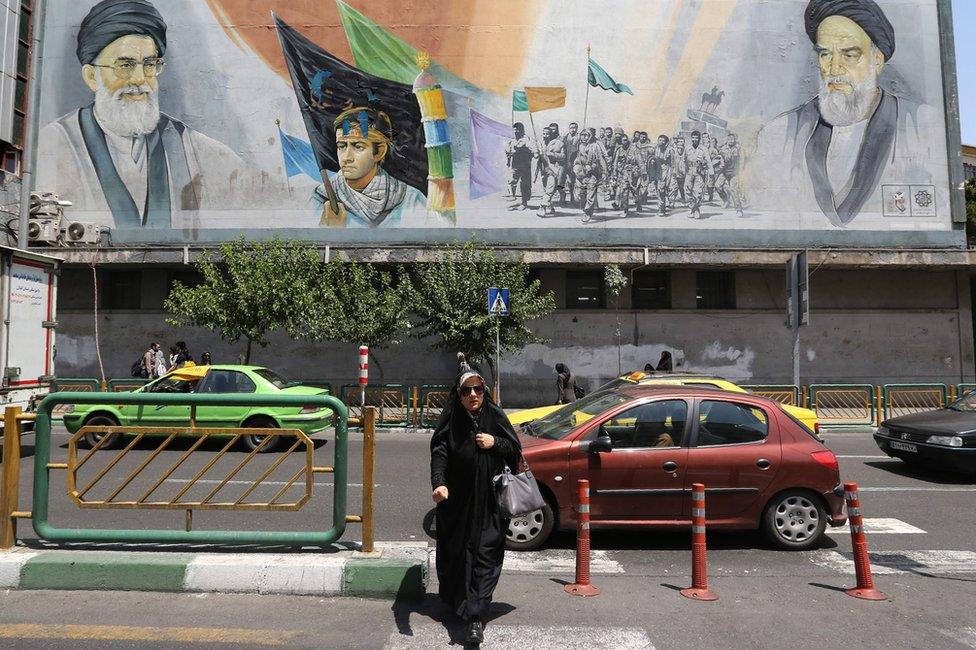
Iran's economy has slumped since the US reinstated sanctions targeting its oil industry
"They said they want to confiscate the leader's property. The leader owns a Hoseyniyyeh [prayer venue] and a simple house. Our leaders are not like the leaders of other countries who have billions of money on foreign accounts that you could appropriate."
Mr Rouhani added that the decision to target his foreign minister proved Mr Trump did not want to talk.
"You immediately proved you were lying. You are not sincere; you are not looking to negotiate. You could have waited for a little while so that the world could believe that you were sincere."
Iranian foreign ministry spokesman Abbas Mousavi warned that the sanctions against Mr Zarif would signal the "permanent closure of the path of diplomacy".
Update 26 June 2019: An earlier version of this article said President Rouhani had described the White House as "mentally retarded". The translation has been revised to say "mentally disabled".
- Published24 June 2019
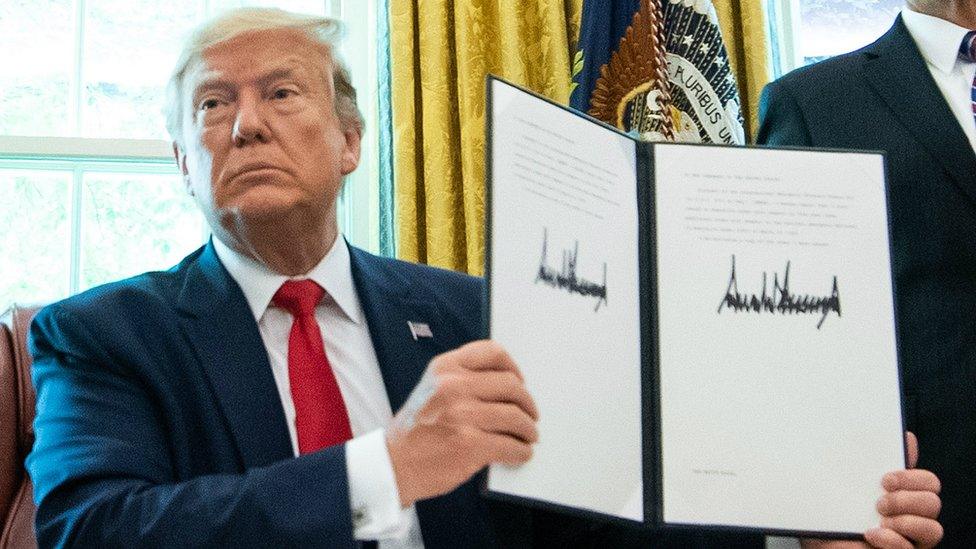
- Published22 June 2019
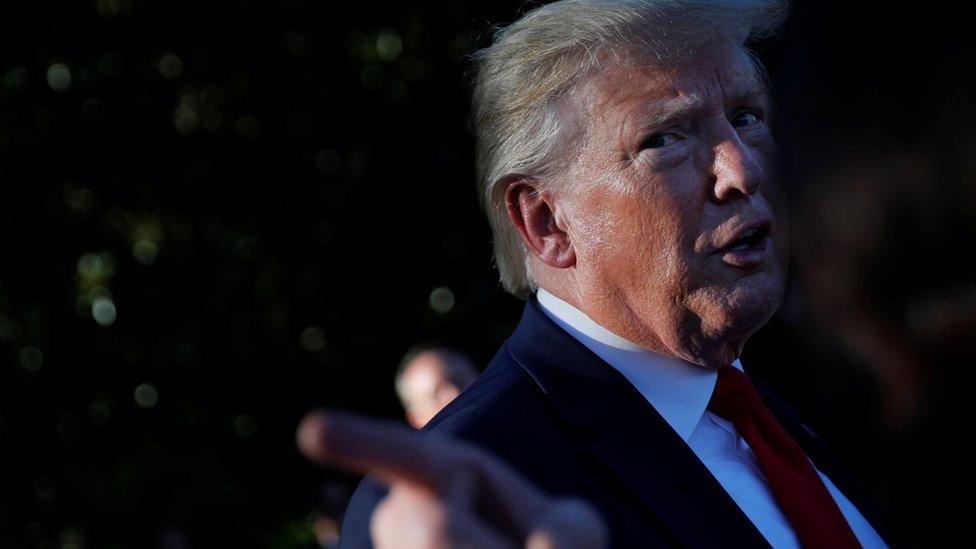
- Published17 June 2019
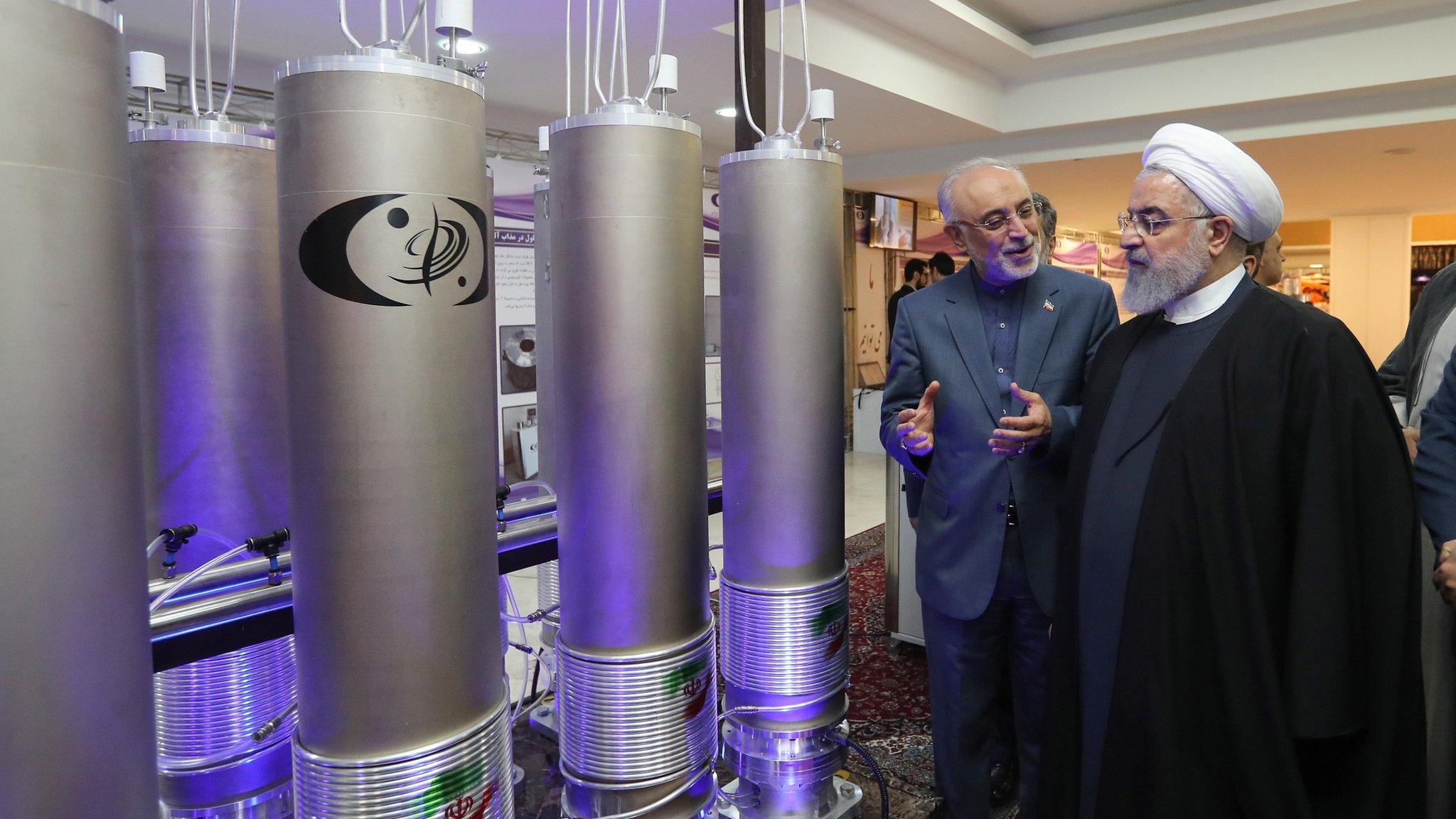
- Published16 November 2021
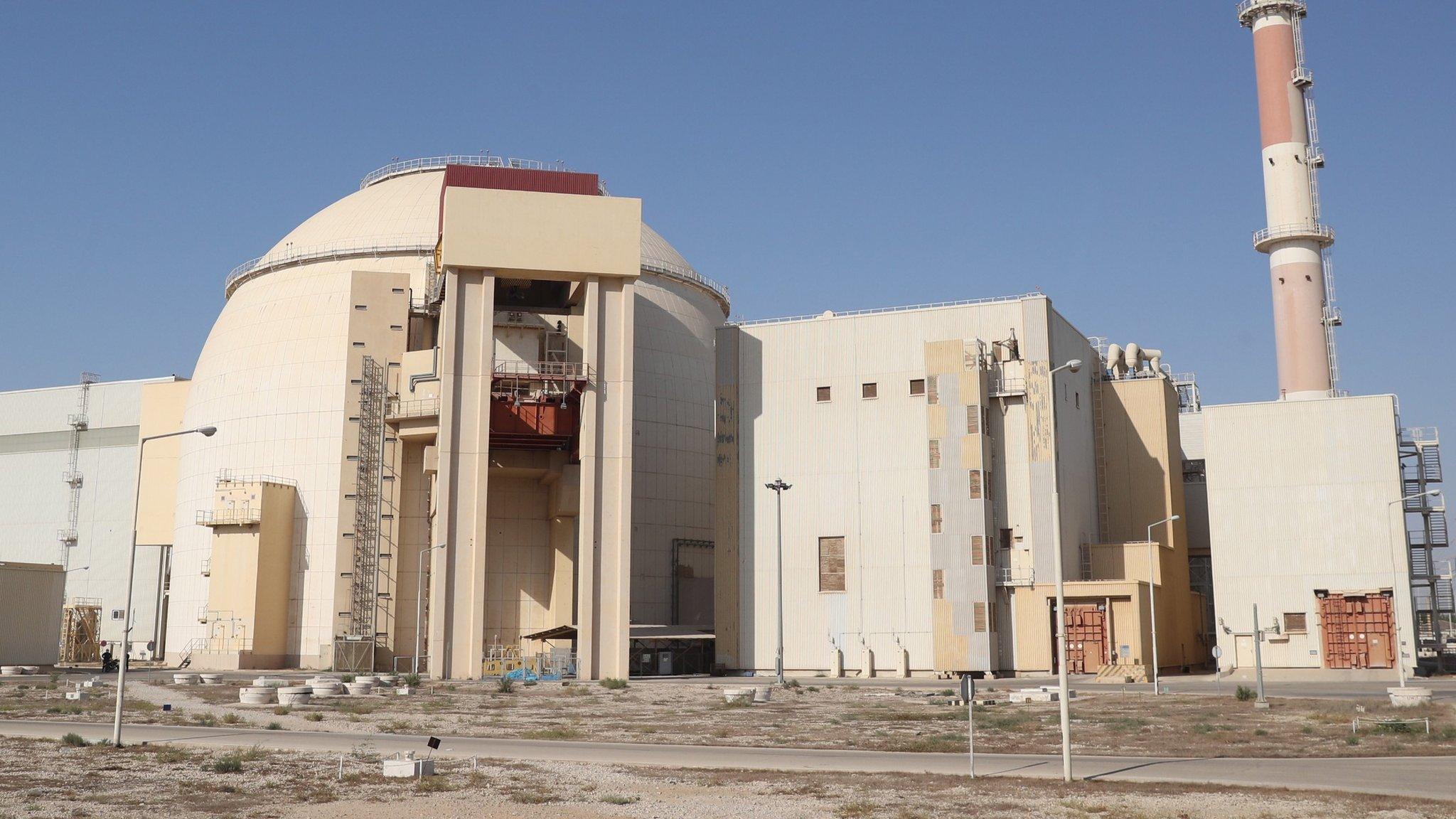
- Published21 June 2019
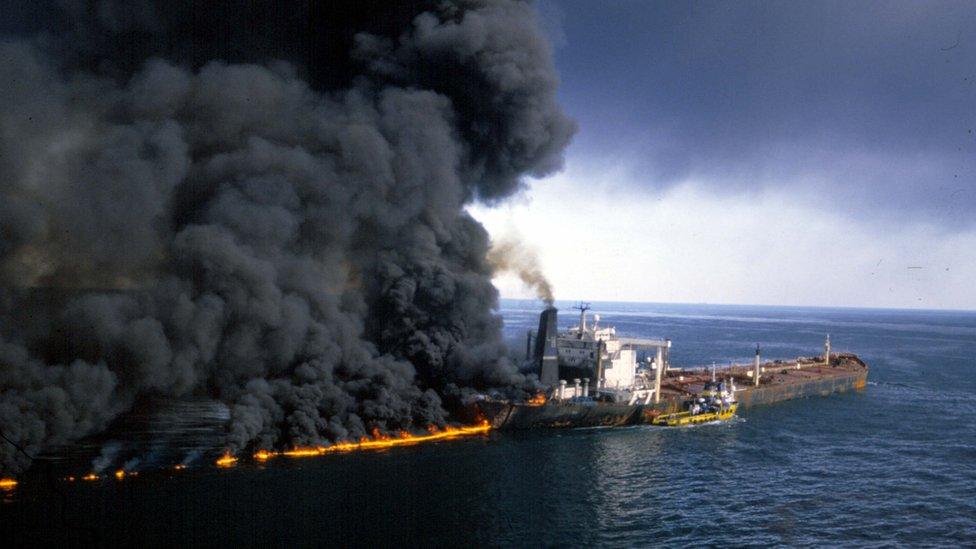
- Published9 December 2019
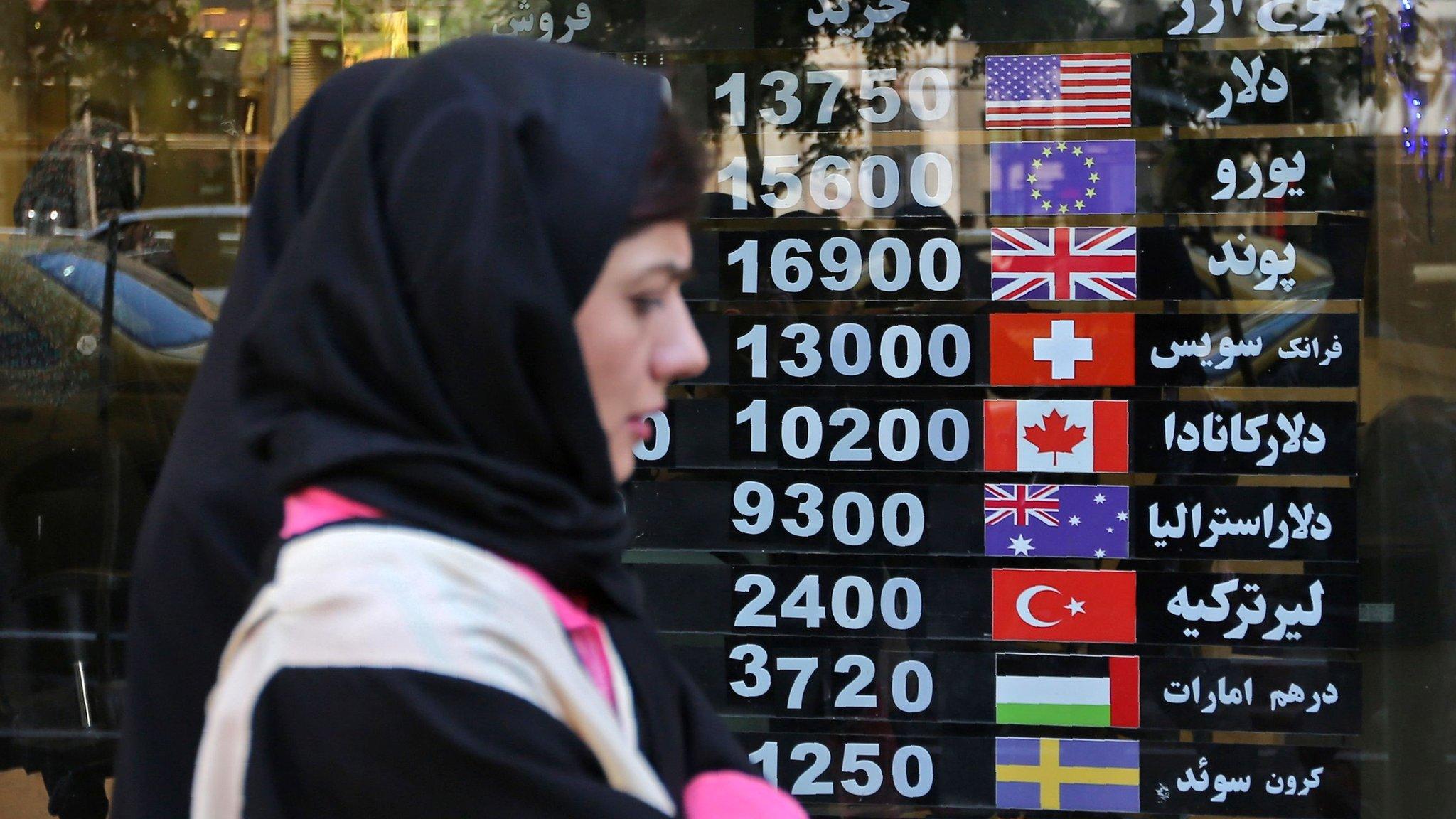
- Published6 January 2020
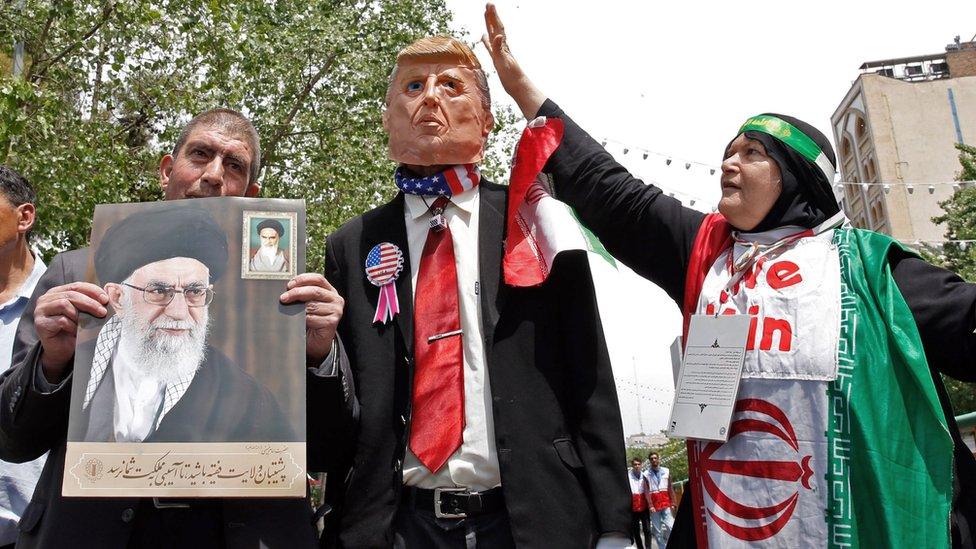
- Published21 June 2019